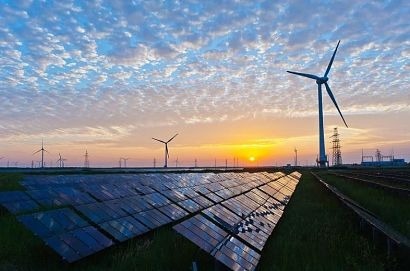
ACEEE evaluated five US grid regions (California, Texas, the Pacific Northwest, the Southeast, and the Midwest) and found that as the grid decarbonises, energy efficiency upgrades can reduce costs that would otherwise be passed on to customers by $10 billion to $19 billion annually per region by 2050.
The study analysed the impacts of a package of efficiency measures applied to all commercial and residential buildings in a 95 percent decarbonised power grid, modeling cost savings by 2030 and 2050 from avoided energy generation and transmission costs, which are largely passed on to households and businesses.
“Energy efficiency will be crucial in a future with much more renewable energy” said Mike Specian, utility program manager at ACEEE and lead author of the report. “Efficiency becomes more important for reducing costs the more the electric grid decarbonises because it offsets projected escalating costs of fossil fuels and carbon capture in the future.”
ACEEE’s report found the modeled package of energy efficiency improvements could also minimise remaining greenhouse gas emissions as power generation moves away from fossil fuels. Even in largely decarbonised grids, at times when electricity demand peaks, fossil fuel plants are brought online to meet the demand. Energy efficiency reduces that peak demand, reducing the need for additional fossil fuel generation. The report found that under a scenario with 95 percent decarbonised power in 2050, efficiency can cut fossil fuel generation during the electric grid’s most carbon-intensive hours by more than two-thirds in most regions.
Efficiency upgrades that reduce energy use from building heating and cooling (such as improved insulation, air sealing, and high-efficiency heat pumps) deliver the most energy savings, followed by residential heat pump water heaters, according to the report. ACEEE found greater short-term energy savings from efficiency measures in commercial buildings, with residential energy reductions growing through mid-century as older systems are replaced with more-efficient equipment.
The report recommends that energy efficiency providers, such as utilities or other efficiency programme administrators, prioritise weatherisation, efficient heating and cooling equipment, and heat pump water heaters. Replacing electric resistance heating and lower-performing air-source heat pumps with high-performance heat pumps guarantees energy savings and less demand on the grid. This is especially true in Texas and the Southeast because those regions have high penetrations of inefficient electric heating and many poorly insulated homes.
With limited opportunities to replace building heating equipment - which largely occurs toward the end of life for furnaces, heat pumps, and hot water heaters - efficiency service providers should give households and businesses educational materials in advance to prepare them to be ready to transition to more-efficient systems. Bringing the benefits of energy efficiency to low- and moderate-income households in some cases will require addressing impediments such as leaks that can compromise the building envelope or lead paint remediation.
The report assumed a modest level of building electrification from the Energy Information Administration’s Annual Energy Outlook. Widespread replacement of gas-burning furnaces and other equipment with electric alternatives would increase peak electricity demand, making efficiency even more important to avoid costly grid upgrades.
For the study, ACEEE used two projections of hourly energy use by region, one focused on energy savings from efficiency measures and the other on avoided energy supply costs. ACEEE analysed those data to identify which efficiency measures would be most effective at avoiding electricity system costs and reducing climate pollution.
For additional information:

